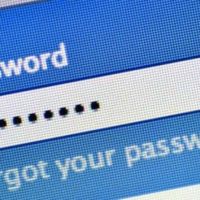Put in the wrong hands, your employees’ login credentials can be the key to a massive security leak. Though you can set up every possible security system, you may be at a loss if your employees’ passwords are too easy to guess.
Even the strongest firewalls and encryption software in the world won’t be able to do anything if somebody was able to log in by guessing and inputting somebody’s credentials.
Here are a few of the most embarrassing passwords that are so easy to crack that people shouldn’t have bothered setting them at all:
1. Sequential letters or numbers
According to an article on The Telegraph, the password “123456” and its variants are still in the top five list of most common login credentials. But this predictability did not appear to be limited to numbers, as letters next to each on the keyboard were just as popularly used, such as “qwerty.”
In fact, some users put some effort into mixing it up by typing in “abc123” or “qwerty123456.” While the idea is there, these are the first combinations that hackers would try, and unfortunately, they more than often succeed in breaking into accounts because of their login credentials’ simplicity.
2. What it says on the tin
Coming in at number two on the list, “password” is still one of the most common combinations used (if one could even call it that), despite the fact that it is the number one word most hackers would try first.
We could give credit to those who tried to mix it up by using “passw0rd” instead, except that it’s still in the top 25 worst offenders. While “login” is a little more creative, that’s probably not too hard to guess, either.
Unfortunately for those who plead by using “letmein,” they won’t be able to get back into their accounts once they’ve been compromised due to the fact that it’s also a common key.
3. Common dictionary words
Baseball and football must really be so ingrained in the subconscious of US citizens that they have decided to use them as the digital key to their accounts. Unfortunately, these two words are in the top ten list of most commonly used credentials, too.
“Welcome” is nice to hear, but your employees won’t see this greeting if they get locked out of their accounts for using such a simple key.
The Takeaway: Passwords should be hard to guess (for obvious reasons)
These are just a few of the most common offenders when it comes to passwords that are way too easy to guess, even for people who aren’t considered seasoned hackers.
To add even more protection, tell each department not to let their browsers, programs, or PCs automatically log in or save their user credentials. This will add another hurdle for hackers trying to get into your online accounts.
It may be a little more inconvenient, but the extra few seconds they’ll take to re-input their details could save your business millions of dollars in possible data breach damages.


